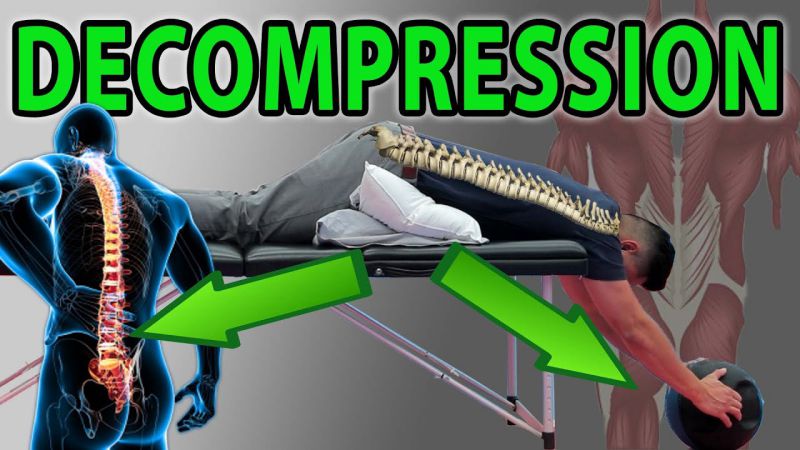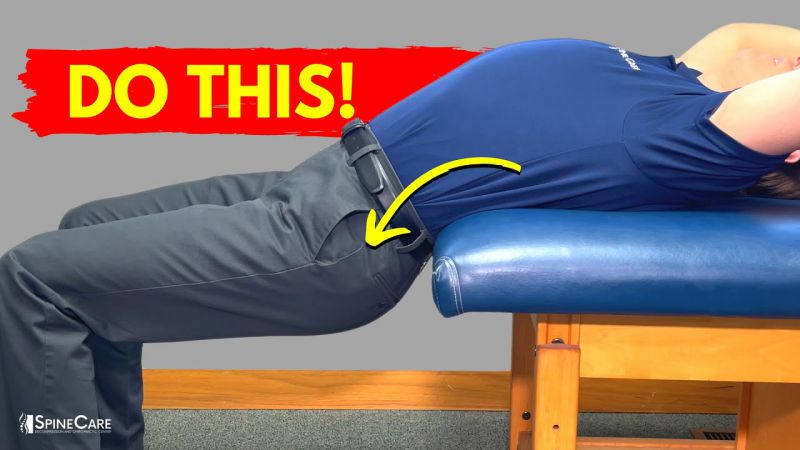Do you suffer from back pain? If so, you may be looking for ways to decompress your spine while you sleep. Don’t worry if you don’t know how to decompress spine while sleeping.
There are a few different positions that can help, including sleeping on your back with a pillow under your knees, sleeping on your side with a pillow between your knees, and sleeping in an inclined position.
In this article, we will discuss the different ways to decompress your spine while sleeping and provide some tips for choosing the right position for you. Let’s get into further details! Best Back Pain Solution.
Table of Contents
- 1 Common Causes of Spinal Compression
- 2 How to Decompress Spine While Sleeping for Optimal Health?
- 3 Ideal Sleep Positions to Reduce Spinal Compression
- 4 Sleep Positions to Avoid for Spinal Health
- 5 How to Improve Your Spinal Health Through Lifestyle Changes?
- 6 Frequently Asked Questions (FAQS)
- 7 The Bottom Line
Common Causes of Spinal Compression
By implementing the following strategies, you can enhance your sleeping posture and gradually alleviate spinal compression, leading to improved health and more restful sleep.
Poor Posture
Poor posture can also put stress on your spine. When you slouch or hunch over, you put more weight on your discs and ligaments. Make sure to sit up straight and stand tall throughout the day.
Sedentary Lifestyle
A sedentary lifestyle can lead to muscle weakness and decreased flexibility, which can put stress on your spine. If you sit for long periods at work or home, make sure to get up and move around regularly.
Heavy Lifting
Lifting heavy objects can put a lot of strain on your spine. If you have to lift something heavy, bend your knees and use your legs to lift the object. Avoid lifting with your back.
How to Decompress Spine While Sleeping for Optimal Health?
There are a few different positions that can help you decompress your spine while you sleep.
Sleeping on Your Side
If you prefer to sleep on your side, place a pillow between your knees to keep your hips aligned. You can also place a pillow under your head to keep your neck in a neutral position.
Sleeping on Your Back
Sleeping on your back is one of the best positions for decompressing your spine. To do this, place a pillow under your knees to keep your lower back in a neutral position.
Sleeping in an Inclined Position
If you have back pain, you may find relief by sleeping in an inclined position. To do this, prop up your upper body with pillows or a wedge pillow.
Ideal Sleep Positions to Reduce Spinal Compression
Take note of the following positions that promote spine health and reduce compression:
Fetal Position
Curl up on your side with your knees drawn towards your chest. This posture aids in spinal alignment and reduces strain on the back.
Side Sleeping with Pillow Support
Sleep on your side with a pillow between your knees. This helps keep your spine properly aligned and prevents excess twisting.
Back Sleeping with Knee Support
Lie on your back and place a pillow under your knees. This position helps maintain the natural curve of your spine and minimizes pressure on the discs.
Related Posts:
- Cryotherapy For Back Pain
- Back Decompression Exercises
- Chiropractic Stretches For Lower Back
- Will Chiropractor Help Sciatica
Sleep Positions to Avoid for Spinal Health
By choosing the right sleep positions, you can help to decompress your spine and relieve back pain.
Twisting and Turning During Sleep
Constantly changing positions throughout the night can disrupt proper spinal alignment and cause unnecessary pressure on the spine.
Stomach Sleeping and its Impact on the Spine
Sleeping on your stomach can strain the neck and flatten the natural curve of the spine, leading to discomfort and potential long-term issues.
How to Improve Your Spinal Health Through Lifestyle Changes?
Achieving a healthy spine is vital for overall well-being. While various activities can contribute to spinal decompression, your sleeping habits play a crucial role. Here are some lifestyle habits to promote a healthy spine during sleep.
- Invest in a Supportive Mattress – Choosing the right mattress is essential for spinal health.
- Use Supportive Pillows – Invest in quality pillows that support your neck’s natural curve, promoting proper spinal alignment throughout the night.
- Optimal Sleeping Positions – Experiment with different sleeping positions to find what suits you best. Sleeping on your back with a pillow under your knees or on your side with a pillow between your legs can help decompress the spine.
- Stretch Before Bedtime – Gentle stretching before sleep can reduce strain on your spine.
Frequently Asked Questions (FAQS)
1. What causes spinal compression?
Spinal compression can be caused by a sedentary lifestyle, poor posture, and heavy lifting. Sitting for long periods, slouching, and lifting with your back can stress the spine and lead to compression.
2. What sleep positions should I avoid for spinal health?
Avoid sleeping on your stomach, as it can strain the neck and flatten the natural curve of the spine. Also, try to minimize constant twisting and turning during sleep, as it can disrupt proper spinal alignment.
The Bottom Line
Taking care of your spine while sleeping is essential for overall health and well-being. By choosing the right sleep positions, investing in a supportive mattress and pillows, and adopting healthy lifestyle habits, you can promote spinal decompression and alleviate back pain.


